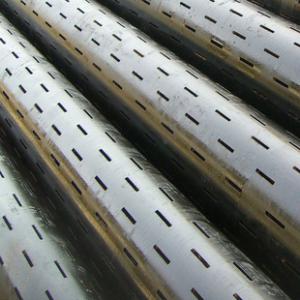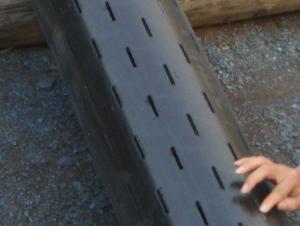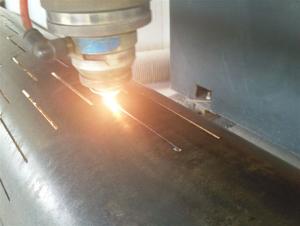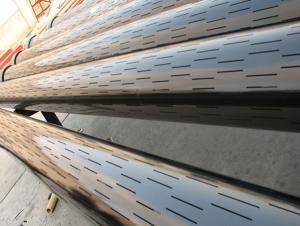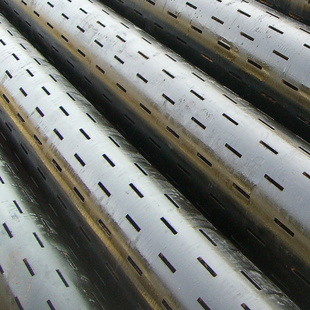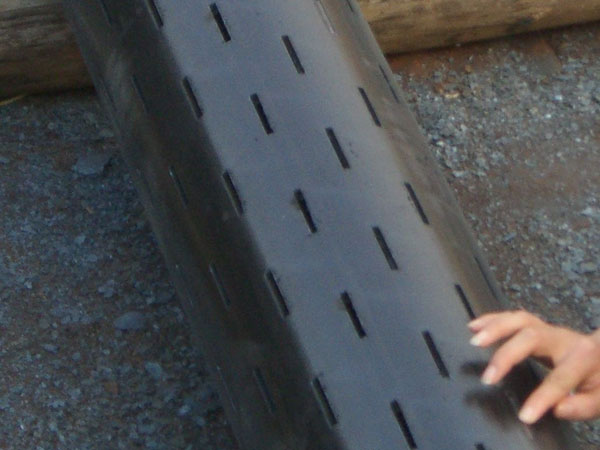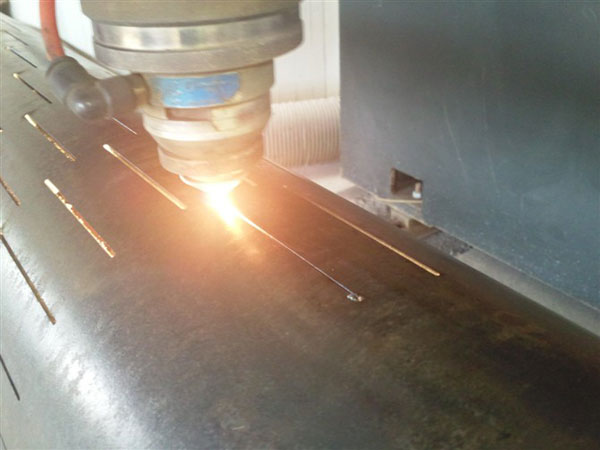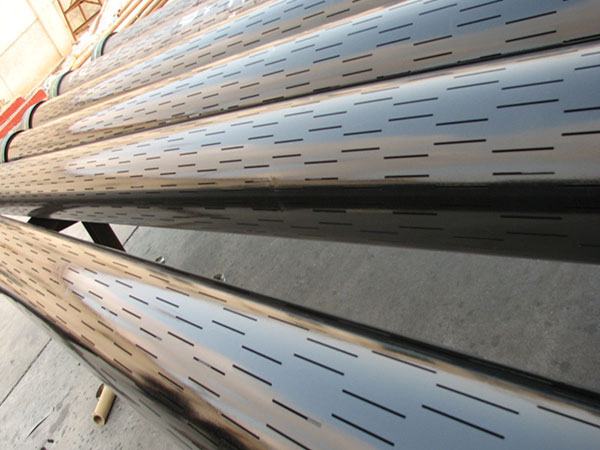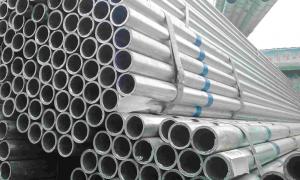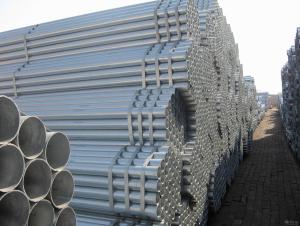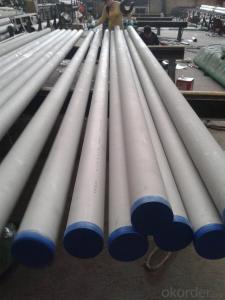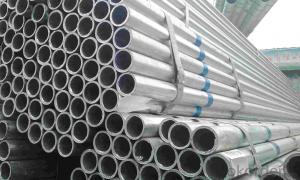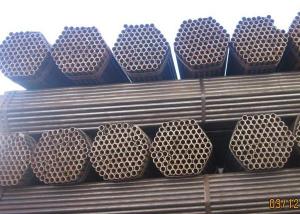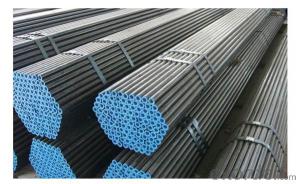J55|N80 Slotted Liner
- Loading Port:
- Tianjin
- Payment Terms:
- TT OR LC
- Min Order Qty:
- -
- Supply Capability:
- 20000 m.t./month
OKorder Service Pledge
OKorder Financial Service
You Might Also Like
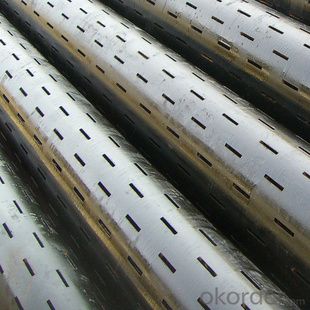
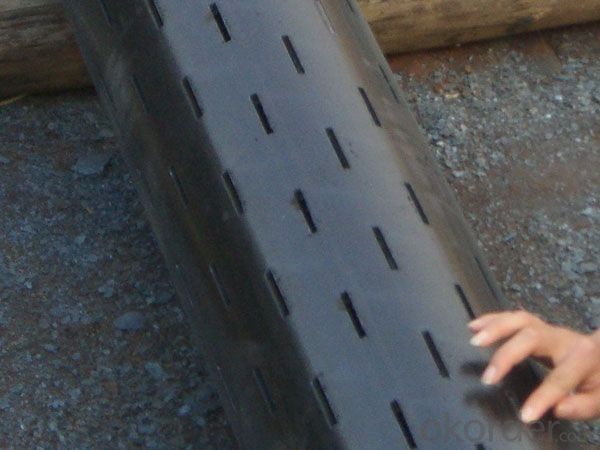
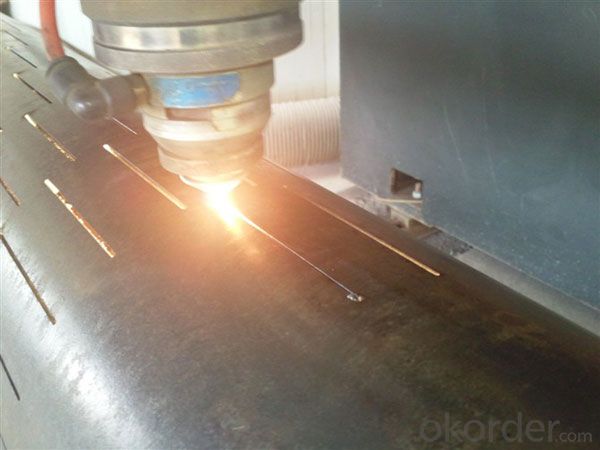
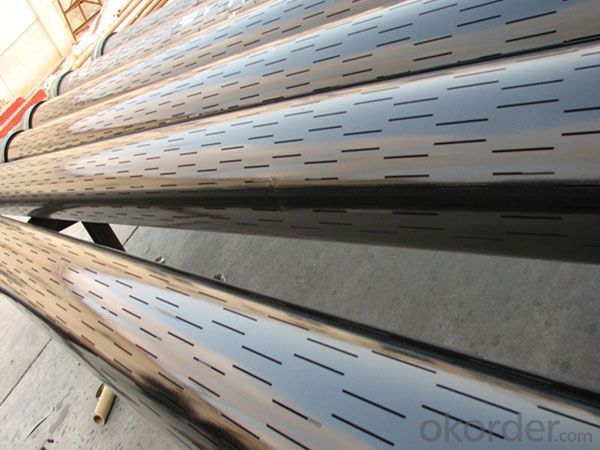
Product Descriptions :J55|N80 Slotted Liner
Slotted liners are used in gravel packed completions to prevent the production of gravel pack sand or can be used in stand-alone service when the formation grain size is large. Slot widths are often referred to in terms of "gage" or "gauge". Slot or screen gage is simply the width of the opening in inches multiplied by a 1,000. For instance, a 12 gage screen has openings of 0.012 inches. Slotted liners are manufactured by machining slot openings through oil-field tubulars with small rotary saws. Slotted liners are fabricated in a variety of patterns as illustrated in Figure.
The minimum slot widths that can be achieved is about 0.012 inches; however, slots widths cut below 0.030 inches in thickness involve higher costs because of excessive machine down time to replace broken saw blades that become overheated, warped and break. While the slotted liners are usually less costly than wire-wrapped screens, they have a smaller inflow area and experience higher pressure drops during production.
Slotted liners also plug more readily than screens and are used where well productivity is low and economics cannot support the use of screens. The single slot staggered pattern is generally preferred because a greater portion of the original strength of the pipe is preserved. The staggered pattern also gives a more uniform distribution of slots over the surface area of the pipe. The single slot staggered pattern is slotted with an even number of rows around the pipe with a typical 6 inch longitudinal spacing of slot rows.

SLOTTED LINER GEOMETRIES
The slots can be straight or keystone shaped as illustrated in Figure. The keystone slot is narrower on the outside surface of the pipe than on the inside. Slots formed in this way have an inverted "V" cross-sectional area and are less prone to plugging since any particle passing through the slot at the OD of the pipe will continue to flow through rather than lodging within the slot.
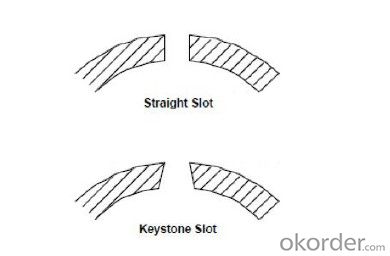
STRAIGHT AND KEYSTONE SHAPED SLOTS
The length of the individual slots is gauged on the ID of the pipe. Usual practice dictates 1½ inch long slots for slot widths 0.030" and under, 2 inch long slots for slot widths between 0.030 to 0.060 inches and 2½ inch long slots for slot widths 0.060 inches and larger (see Figure 6.4). Slot width tolerance is generally 0.003 inches for widths 0.040 inches and wider and 0.002 inches for widths less than 0.040 inches.
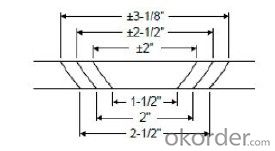
STANDARD SLOT LENGTHS
Slotted liners are generally designed to have a 3 percent open area relative to the OD surface area of the pipe although open areas up to 6 percent are feasible in some cases. The number of slots per foot required to achieve a given open area is calculated with the equation below.

where: N = required slots/foot (if N < 32, round up to the nearest multiple of four, if N > 32, round up to the nearest multiple of 8) Pie = constant (3.1416) D = outer diameter of pipe (inches) C = required open area (percent) W = slot width (inches) L = length of slot measured on ID of pipe (inches)
Dalipal Company is one of the most famous enterprises of china professionally producing pipeline and oil casing.We can supply API 5CT series of pipeline and oil casing with all kinds of specifications and materials.We have first-class production equipment and technology.
- Q: Can steel pipes be recycled?
- Yes, steel pipes can be recycled. Steel is a highly recyclable material, and the recycling process for steel pipes involves melting them down to create new steel products. Recycling steel pipes not only conserves natural resources but also reduces energy consumption and carbon emissions associated with the production of new steel.
- Q: How are steel pipes used in the food processing industry?
- Steel pipes are commonly used in the food processing industry for various purposes such as conveying liquids, gases, and solids, as well as for structural support. They are used to transport ingredients, such as water, oils, and other liquids, from one area to another within the food processing plant. Steel pipes are also utilized for the distribution of compressed air or steam, which are essential for cooking, sterilization, and cleaning processes. Additionally, steel pipes are employed in the construction of equipment and machinery, providing a sturdy and reliable framework for various food processing operations.
- Q: What is the diameter of the steel tube DN20?
- Stress: the nominal diameter is not the outer diameter of the pipe, nor the inner diameter of the tube. It is not the average value of the inside and outside diameter (the nominal diameter of the equipment refers to the outer diameter).
- Q: Can steel pipes be used for sewage treatment plants?
- Yes, steel pipes can be used for sewage treatment plants. Steel pipes are durable and resistant to corrosion, making them ideal for handling sewage and wastewater in such facilities. They are commonly used for conveying and distributing sewage, as well as for constructing various components like pipelines, pump stations, and treatment tanks. Additionally, steel pipes can withstand high pressure and are available in various sizes, making them suitable for the diverse needs of sewage treatment plants.
- Q: What are the different types of thread connections used in steel pipes?
- The different types of thread connections used in steel pipes include tapered threads such as NPT (National Pipe Thread), BSPT (British Standard Pipe Taper), and API (American Petroleum Institute) threads. There are also parallel threads like BSP (British Standard Pipe) and G (ISO 228-1). These thread connections are used to join and seal steel pipes in various industries and applications.
- Q: What are the different threading options for steel pipes?
- The different threading options for steel pipes include tapered pipe threads (NPT/NPTF), straight pipe threads (NPS/NPSM), and mechanical threads (such as API threads). These threading options provide different levels of sealability, compatibility, and ease of installation, allowing for a variety of applications and connections.
- Q: What are the different types of steel pipe bends?
- There are several types of steel pipe bends, including long radius bends, short radius bends, and induction bends. Long radius bends have a larger radius and are used when a gentle bend is required. Short radius bends have a smaller radius and are used when a more abrupt bend is needed. Induction bends are created using a heating process to achieve specific bend angles and radii.
- Q: Are steel pipes suitable for oil and petroleum applications?
- Yes, steel pipes are highly suitable for oil and petroleum applications. They possess excellent strength, durability, and resistance to corrosion, making them ideal for transporting and storing oil and petroleum products. Steel pipes can withstand high pressure and extreme temperatures, ensuring the safety and efficiency of oil and petroleum operations.
- Q: How are steel pipes used in the mining industry?
- Steel pipes are widely used in the mining industry for various purposes such as transporting water, slurry, and other fluids, as well as for ventilation and structural support in underground mines. Their durability, resistance to corrosion, and high pressure capacity make them ideal for these applications.
- Q: How are steel pipes insulated to prevent heat loss?
- Steel pipes are typically insulated to prevent heat loss by wrapping them with insulation materials such as mineral wool, fiberglass, or foam. These insulation materials provide a barrier that traps heat within the pipes, preventing it from being lost to the surrounding environment. Additionally, pipes may also be covered with an outer protective layer, such as aluminum or PVC, to further enhance insulation and protect against external elements.
Send your message to us
J55|N80 Slotted Liner
- Loading Port:
- Tianjin
- Payment Terms:
- TT OR LC
- Min Order Qty:
- -
- Supply Capability:
- 20000 m.t./month
OKorder Service Pledge
OKorder Financial Service
Similar products
Hot products
Hot Searches
Related keywords
